india is coercing Kashmiri academics to submit and self-censor
August 18, 2022.
indian-occupied Kashmir.
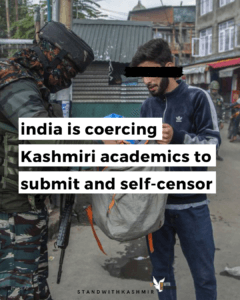
Since August 2019, India has intensified its attacks against all facets of Kashmiri civil society: human rights defenders and organizations, journalists, lawyers, and activists. More recently, the Indian government has escalated its crackdown on Kashmiri academics and researchers, in an attempt to completely stifle all forms of independent inquiry and documentation. Those who have been targeted are primarily involved in critical research on Kashmir and on India’s long-term colonization of the region.
We look at the different ways in which India has attempted to stifle academic freedom in Kashmir:
- Dismissal of government employees, especially in the Department of Education
This targeted manhunt started with the Indian government operating through its Governor in Kashmir and introducing a new law where it could dismiss any Kashmiri government employee over the age of 48 years. In March 2021, the Governor also issued a circular mapping the Dos and Donts of social media for government employees, while previously in the year 2018, a Doctor from the Jammu region was dismissed for a Facebook post.
Laws and actions like these have enormous consequences for the local population considering that the private sector is minimum in the region and the government and bureaucracy are the major source of salaried employment. This new law has been especially used against government employees who tacitly support, or have any links to, the freedom movement. While these dismissals, nearing about three dozen by now, have been across all government departments, the Education department has borne the major brunt. A number of school teachers and professors from the University of Kashmir were dismissed or suspended either for “alleged militant links”, or “religious affiliations”.
Some recent names to be dismissed are noted legal scholar, columnist, and Principal of the Kashmir Law College Dr Sheikh Showkat, Dr Muheet Ahmad Bhat – Scientist-D in Post-Graduate Department of Computer Science and Dr. Syed Majid Qadri – Senior Assistant Professor in the Department of Management Studies, both at the University of Kashmir. The later were dismissed while this article was being compiled. At the same time, oorganizations like the Kashmir University Teachers Association have also been put under scanner for “anti-national activities” and accused of being a “terrorist-secessionist” network.
Here is a direct quote from an official document that seeks to target Kashmiri academics:
“As regards the teaching staff only 3 have been found to be contaminated to an extent that requires immediate attention. There are 12 others who have been assessed to be contaminated to a lesser degree requiring a different type of graded response. There is a third category of 24 others who may need counseling and observation only.”
2) Arresting Academics
The Indian government has proactively sought to censor all kinds of critical research coming out of Kashmir and students have been their prime targets. A scholar from the Pharmacy department of the University of Kashmir was recently arrested for an article he had written in a local daily. The piece titled “The Shackles of Slavery Will Break” was termed seditious after 10 years of its publication and the student was incarcerated.
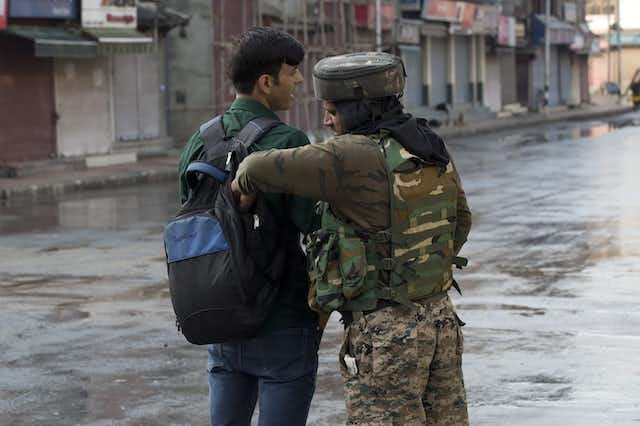
3) Monitoring and Surveilling all academics, events, and research
The Indian Ministry for External Affairs recently issued an order whereby government approval was made mandatory for any online events on India’s “internal matters”, of which Kashmir is included. India’s Central Ministry for Human Resource Development which controls Education in the country also came up with an order in the year 2019 whereby it asked universities and students to pursue Ph.Ds only on the topics of “national interest”. While for Indian academics this seems to have not rung any alarm bells, it has had widespread implications for Kashmiri academia. Universities and departments have been asked to provide a list of thesis topics of their graduate students to ensure that critical themes are not being researched. Students pursuing research on topics deemed to be critical of the state have been coerced to change these topics along with making them withdraw papers which were due for publication. Faculties have also been requested to submit a copy of their property statements and seek prior approval before traveling abroad for higher studies. Academia in the region which has always been under-supported and subjected to financial duress now faces a hegemonic state which is forcing them into submission and self-censorship.
4) Harassment and intimidation
Students and academics have been subject to surveillance (both online and offline) as well as visits to their homes, families, or offices/places of work. Intelligence officials attempt to ask them information about their families, properties, employment, travel, research, and publications. Oftentimes, multiple visits/phone calls are made in an attempt to let academics and students know that they are being watched regularly. Some have had their homes raided and searched. This has enabled an atmosphere of extreme fear.
5) Denial of Mobility
As with journalists and human rights defenders, Kashmiri academics and researchers who wish to travel abroad have to deal with not being allowed to travel or not having their passports renewed or approved. This denies them opportunities towards their professional development. Many of them are thus forced to self-censor in order to be able to travel in and out of Kashmir.
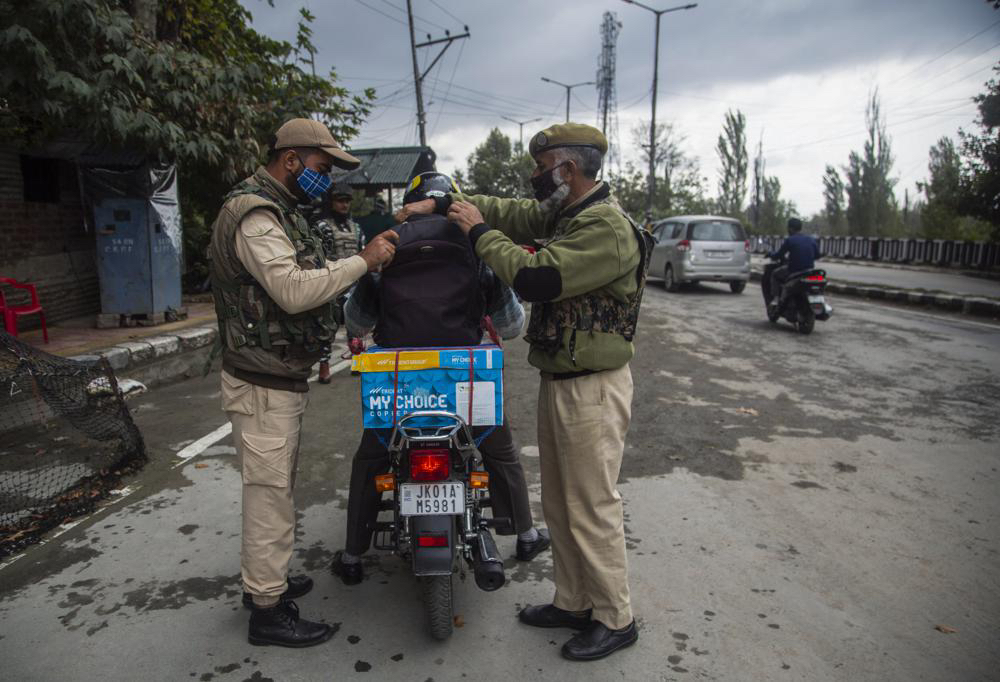
6) Criminalizing terminology
Recently, the High Court of Jammu and Kashmir, while dealing with a question regarding freedom of speech and expression said that use of the terminology “occupation of military” is ‘Unlawful Activity’ and hence, punishable under the draconian UAPA. Notably, the government can declare anyone to be a “terrorist” under this law, without judicial trial of any kind. At the same time, journalists and news houses based in Kashmir have also been asked to cease the use of the term “militants” for armed pro-freedom fighters and instead use the word “terrorist”.
7) Difficulty in Getting Jobs/Professional Advancements
If an academic does critical work on Kashmir, it becomes increasingly difficult to get a job, fellowship, or further research opportunities in Kashmir or across universities in India. Many supervisors and advisors also hesitate to guide those projects due to their own fears of being targeted.
8) Harassment and targeting of Kashmiri academics abroad
The attacks against Kashmiri academics have not been restricted to Kashmir and India. Academics in the diaspora—across Europe, the Middle East, and North America—are also being targeted, surveilled, and harassed. This is especially true in locations where there are large populations of Indian nationalists/Hindutva forces, whereby academic events/talks are disrupted and academics are harassed on social media or in their place of work.
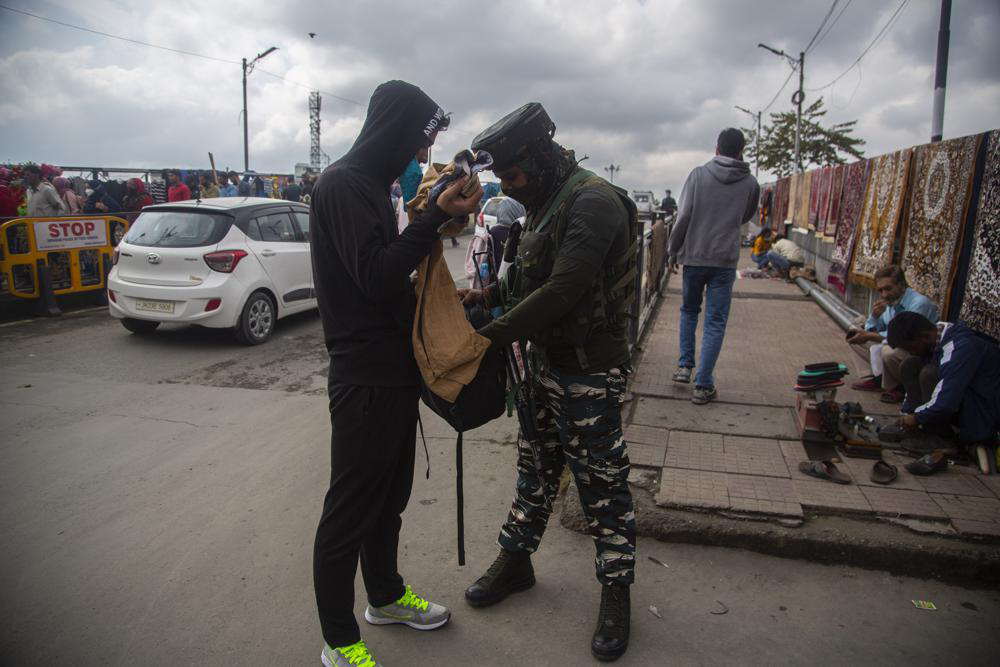
What has all of this resulted in?
A Kashmiri student pursuing his Ph.D. in Social Sciences says that, “This crackdown has led to exponential growth in self-censorship with a tremendously heightened fear of persecution”. He adds that, “The research community in the valley has no escape from this tightening noose and this means that some are either contemplating studies abroad or giving up research completely.”
When a student was asked whether they and their peers have considered “self-censoring” to avoid persecution in the form of arrests and detention, and if yes, what has this meant, they said, “Absolutely. It entails removal of content already in the public domain, refusal to publish anything critical of the state in the near future, not engaging in critical formal or informal discussions etc.”
Critical research and scholarship on Kashmir has disrupted India’s nationalist narratives over its long term colonization of the region. Thus, attacks on academia and critical research emerging out of and on Kashmir means that along with the moves to rapidly change the demography of the region, India has started to strangulate any concrete efforts to document, research, and preserve Kashmir’s reality. India has started to use the language of “white collar terrorist” for all members of Kashmiri civil society in order to further strangle and criminalize them.
Surveillance of everyday life is reaching an all-time high in the region with a serious clampdown on anti-India expression online/offline and the crackdown on academia is a part of this process. While India moves to change the demography of Kashmir and force Kashmiri academia into self-censoring, it becomes immensely important to document and highlight this phenomenon as it is in motion. Kashmiri students and academics, along with other members of civil society, have long played an important role in documenting the Indian occupation and Kashmiri resistance, and thus changing and directly challenging Indian hegemonic narratives. It is imperative that they are allowed to continue.
For more information about Kashmir and its resistance against Indian occupation, follow StandWKashmir across social media.
Stay in touch with Stand with Kashmir.
Stand With Kashmir (SWK) is a Kashmiri-driven independent, transnational, grassroots movement committed to standing in solidarity with the people of indian-occupied Kashmir in ending the indian occupation of their homeland and supporting the right to self-determination of the pre-partition state of Jammu and Kashmir. We want to hear from you. If you have general inquiries, suggestions, or concerns, please email us at info@standwithkashmir.org.
©2025 StandWithKashmir All rights reserved. SWK is a 501(c)(3) non-for-profit organization.
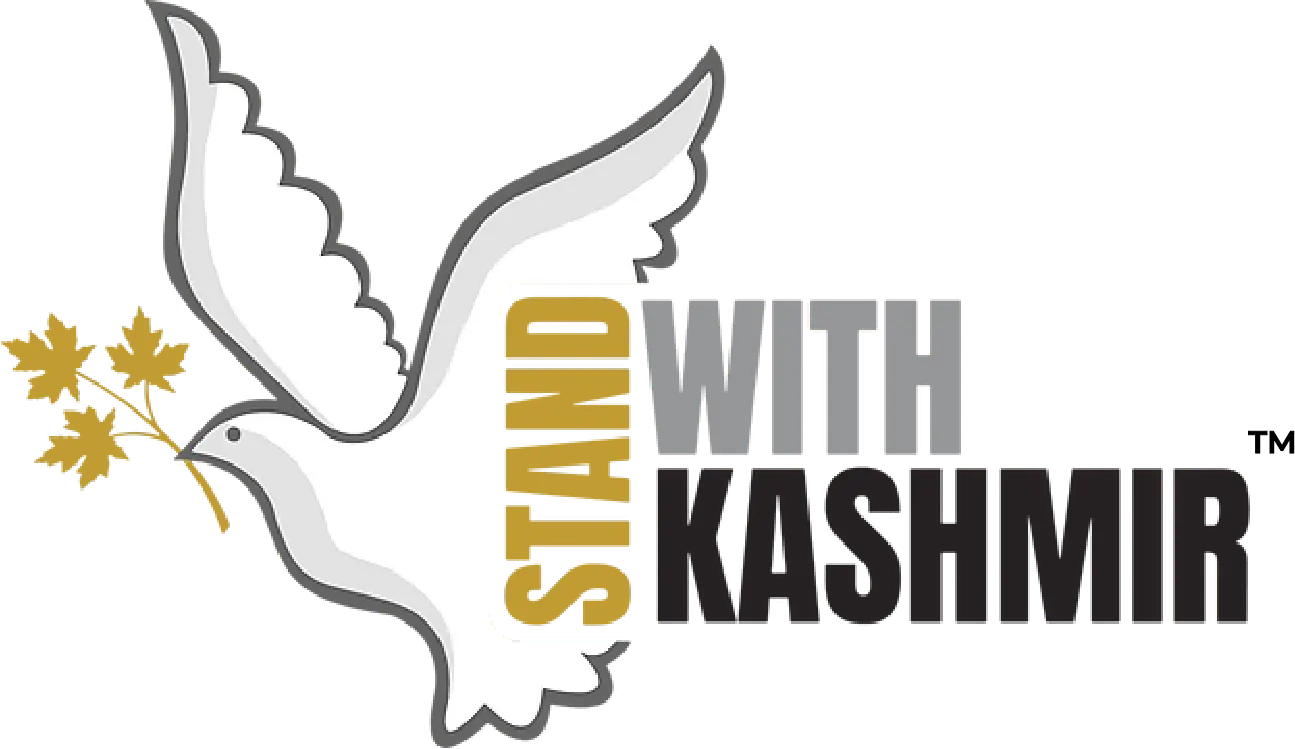
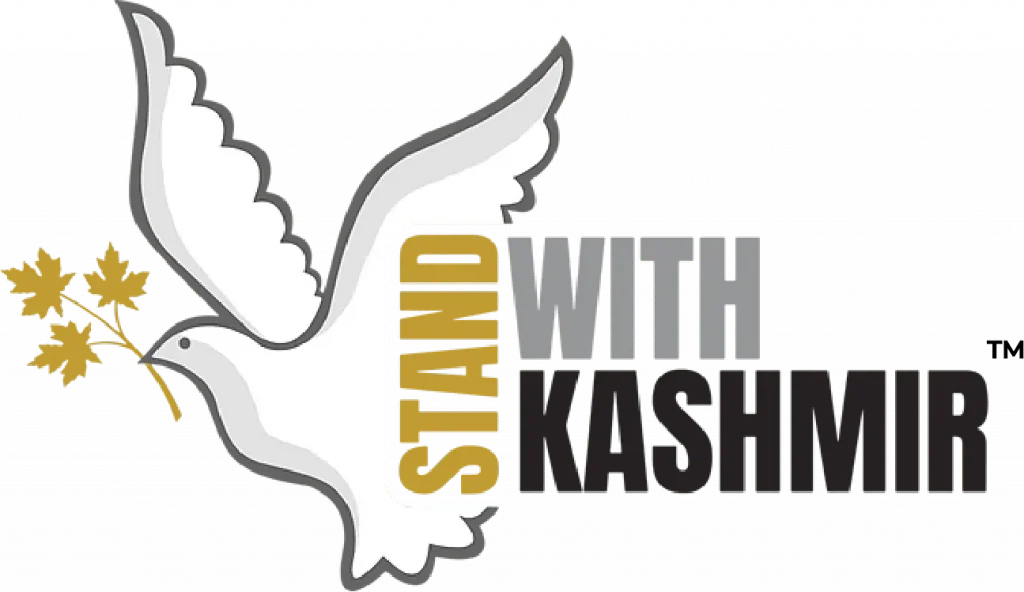
Leave a Reply